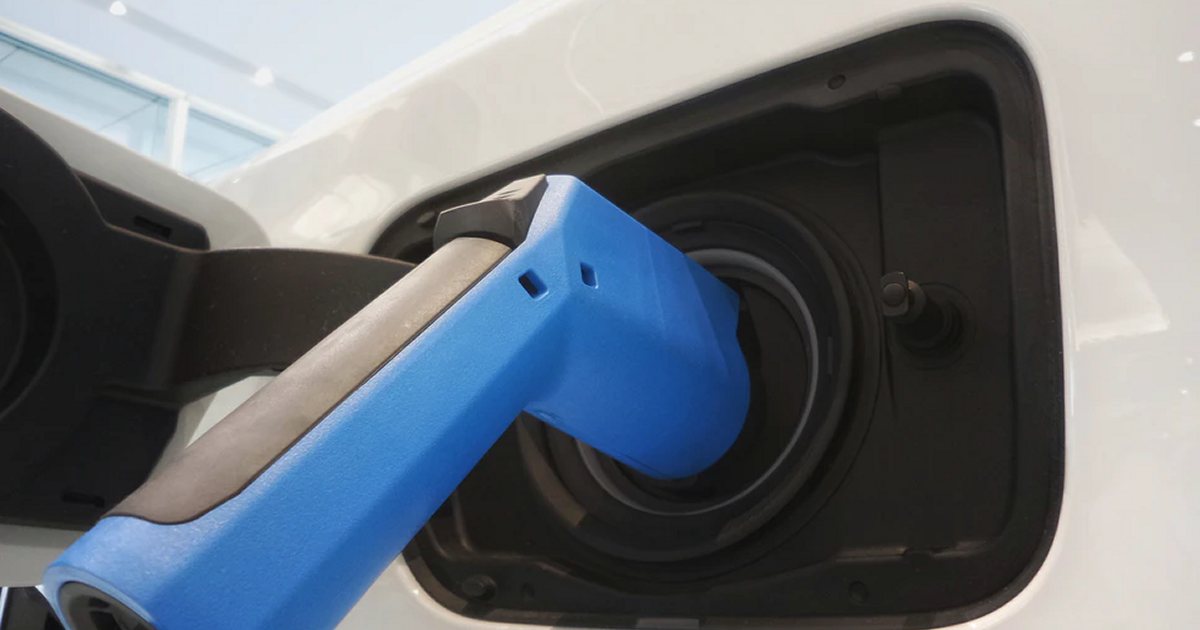
Recent polling finds many Victorians would prefer an electric car for their next vehicle purchase, but taxes on EVs could have an impact on uptake.
A survey of more than 2,000 voters carried out in six key electorates (Richmond, Albert Park, Oakleigh, Eltham, Bentleigh and Mordialloc) by Redbridge for the Electric Vehicle Council revealed 48.2% would prefer an electric vehicle, while 30.4% are leading towards petrol/diesel. 21.4% weren’t sure.
93.8% of respondents didn’t own an EV. 53.9% of those hadn’t purchased yet due to the cost of vehicles and 15.6% due to a perception there wasn’t enough charging infrastructure in place. 13.0% preferred “traditional” cars.
Other survey results include:
- 47.3% believed the EV industry received less support than the traditional vehicle industry, compared to 18% stating it received more support, 11.9% around the same and 22.8% unsure.
- 60.4% said it was “very important” governments set policies that encourage people to purchase electric and non-polluting vehicles.
- 59.7% of respondents said a government supporting electric vehicles would make them more likely to support the government (18.3% less likely and 21.9% unsure).
- 65.4% believed governments should offer cash incentives to make electric and zero-pollution vehicles more affordable (23.0% No, 11.7% unsure).
ZLEV Road User Charge (Tax) Reactions
In November last year Victorian Treasurer Tim Pallas announced plans to introduce a 2.5 cent/km charge for electric vehicles, and a 2.0 cent/km charge for plug-in hybrids. According to the Andrews Government, the proposed tax is being introduced to ensure EV owners make a fair contribution to funding Victorian roads. However, revenue from the first few years of the charge would go towards accelerating the adoption of zero and low emission vehicles.
According to the poll results only 36.1% thought the Andrews Government’s plan to introduce road taxes for EV users was to make road funding fair. 44.1% believed it was about raising taxes and almost 20 per cent were of the opinion it was to benefit petrol and oil companies.
72.1% believed governments introducing more taxes on electric vehicles will mean fewer people buy them.
Commenting on the results relating to EV taxes and charges, Chief Executive of the Electric Vehicle Council Behyad Jafari said:
“It’s clear the Andrews Government needs to do a complete re-steer.”
If passed, the zero and low emission vehicles (ZLEV) road-user charge would kick in from July 1 this year. When electric car owners pay their registration online, a bill will be automatically generated based on odometer information provided.
Electric vehicle owners could expect to pay an additional $330 a year, while plug-in hybrid owners would pay an additional $260 a year based the average distance travelled for light passenger vehicles in Victoria (~13,100 km). ZLEV owners subject to the tax will continue to receive a $100 registration discount on their annual Victorian registration.
On Friday, The Age reported the ZLEV road user charge was facing a rough road ahead as the government doesn’t have the support to pass the legislation in Parliament’s upper house.
Yesterday, Mr. Jafari tweeted:
“GM saw fit to leave Australia shortly before announcing they would go all electric by 2035. Clearly they saw the Aus policy landscape as a hindrance to that objective. Suggesting a further tax on EVs at this early stage shows how out of touch Treasurers are with global markets.”
On a related note, SQ Founder Finn chatted with ABC Newcastle Drive presenter Paul Turton on Friday about the potential for EV manufacturing in Australia generally (starts around the 1hr. 18m mark), as did Ronald last year.
“A company would be very brave to invest a lot of money in manufacturing electric vehicles with the government policy, which is very anti-electric vehicle,” said Finn.
The full results from the Electric Vehicle Opinions Victoria poll can be viewed here.
If you’re considering purchasing an EV and want to know how many solar panels you’ll need at home for charging, check out SQ’s Homeowner’s Guide To Solar And Electric Cars.

 RSS - Posts
RSS - Posts



Electric vehicles raise many different types of issues, requiring many different changes to many different areas of legislation, some of which changes should be implemented, independent of the concept of the method of powering the motorised vehicles.
One particular, but, extremely important issue relating to the nature of Battery Electric Vehicles (BEV’s), that has been completely ignored, in terms of road safety, by both the media (including this blog), and so-named “road safety” institutions, motoring organisations, such as the RAC’s of the various states, AND, the state/territories legislatures, is the issue of licensing of drivers. I do not know what applies in this regard, outside WA (as Australia is a shambolic, dysfunctional federation of feral states), but, in WA, separate classes of motor vehicle drivers licences apply, for motor cars (but, not trucks or busses, as road safety is regarded as unimportant), that have manual and automatic transmissions, which are significantly different to drive, so that, if a person undergoes (and passes) the (one and only, because, if it is passed, it official does not matter about deterioration of competency) practical driving test in an automatic transmission car, the person is qualified and limited to driving cars with automatic transmissions, whereas (for some bizarre and unknown reason) a person who undergoes (and passes) the practical driving test in a motor car with a manual transmission, the person is licensed to drive both motor cars with manual transmissions and automatic transmissions (and, apparently, now, motor cars with Continuously Variable Transmissions, and, single geared transmissions, such as electric cars, including, especially, extremely removed from both automatic and manual transmission cars, the single pedal electric cars). And in Australia (and, Australia is not the only country to which this applies), any idiot wit a car driving licence, can legally tow a trailer, even though the driver may not have any idea of how to properly and safely, deal with towing a trailer. But, from what I understand, in the UK, a separate class of car drivers licence is required, for driving a car towing a trailer, like a separate class of drivers licence, for truck drivers, is required for driving an articulated truck (but, stupidly, in Australia, not for driving a truck towing a trailer). So, the issue here, is that electric cars, with their different forms of driving, require, fore the sake of the officially unimportant issue of road safety, need a separate class of drivers licence, and, an again separate class of drivers licence, for single pedal electric cars, with car driving licences separated by transmission type, and, no class including licencing for any other class.
That is only one example of changes that need to be made, that is shown by the creation of modern BEV’s.
Another, to do with this system of motor vehicle licensing, and, road maintenance taxes.
This issue also involves the issue of road safety, and pollution taxes for various fuels.
From my understanding, from road traffic patrol television “reality programs” involving various countries, in New Zealand, a diesel powered truck is charged diuesel fuel levies, according to distance travelled, between periodic assessments.
Also, I believe in New Zealand, periodic roadworthiness testing examinations are required to be done (and passed), for all motor vehicles, I understand this also applies, to differing degrees, in Victoria and New South Wales, and, in the UK.
Now, what I see as the fair way to deal with these issues, to do with taxes applicable to motor vehicles (and road safety), the taxes relating to road maintenance, pollution from various different types of fuels, etc, is simple.
Every motor vehicle licensed to travel on roads, should be subject to relicensing every six months, with that relicensing being subject to passing mandatory roadworthiness assessment, during which examination, the odometer is read and the reading recorded, and, the relicensing of the motor vehicle involving taxes including a tax per kilometre, per vehicle tonnage (GVM), for road maintenance, a similar tax, varying by fuel type powering the vehicle (one for diesel, one for RULP,m one for PULP, one for two-stroke, zero for electric, etc, with these taxes being in addition to the fees for recording the vehicle registration, and, with such a roadworthiness test (and the applicable fees/taxes), being required to be undertaken, upon the sale of the vehicle, with applicable fees/taxes being required to be paid by the owner who is selling the vehicle, before the vehicle ownership transfer is effected. This, then, should also involve the elimination of the components xchartged for road maintenance and fuel burning pollution, from fuel prices (eg, the price for petrol, paid to fuels stations). And, as these fees/taxces, would then be charged at the state/territory level, as part of the vehicle licensing process, the revenue should be retained by the applicable state/territory governments, for spending on the respective purposes, such as road mainenance/development, and, not for “general revenue”.
Thus, whilst the creation/developmemt/”arrival” of modern BEV’s, shows issues that have not previously been considered, it is an opportunity to both solve pre-existing problems, to which, attention may now be drawn, and, heavily emphasised, as needing solving, and, still, encouraging the uptake of modern BEV’s.